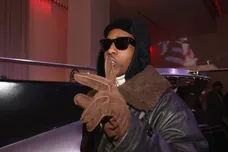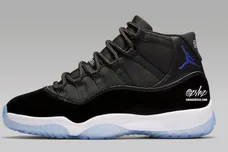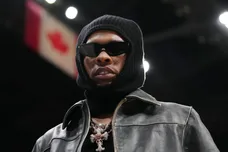In fields like literature, cinema, and hip-hop music, you’ll occasionally hear the canon discussed. The term refers to those projects deemed essential, those that represent a medium’s artistic merit while factoring in the greater historical context. Simply put, there are projects that anybody interested in hip-hop history should check out. Nas’ Illmatic rings true, as does the seminal work of 2Pac, Biggie, Dr. Dre, Snoop Dogg, Ice Cube, DMX, OutKast, Lil Wayne, Juvenile, and many more; to name them all would be a lengthy task, one for another time. Those worthy of inclusion are often hailed as classics, which inadvertently sets the bar for the rest of the albums. Given the appropriately lofty pedigree, fans eager to familiarize themselves with the history will likely draw from the canon first, thus leaving many an-unsung gem in the dust.
In the process, many great albums go forgotten, left only to the devices of their loyal fanbase. This is by no means a definitive round-up of the best underrated albums of all time. It’s simply a means of shining a light on some unsung projects, many of which remain excellent listens from start to finish. If you’re looking to check out something beyond the beaten path, perhaps consider giving one of these a spin. And feel free to suggest your own recommendations, as sometimes word of mouth is the only way to keep a legacy thriving.
STICKY FINGAZ - BLACK TRASH: THE AUTOBIOGRAPHY OF KIRK JONES
Coming off his brash run in Onyx, some were quick to label Sticky Fingaz as a rugged gangsta rapper void of any creative depth. When he delivered his debut solo album Black Trash: The Autobiography Of Kirk Jones, the narrative cartwheeled. Sticky had crafted a sprawling and conceptually dense tale, complete with hard-hitting cuts like “Come On” and “My Dogz Is My Gunz”, introspective ones like “Sister I’m Sorry” and the Eminem-assisted “What If I Was White,” and full-blown storytelling joints like “Money Talks” and the stacked “State Vs. Kirk Jones.” All the while, Sticky plays director to his own titular autobiography, laying the framework Kendrick Lamar would one day follow on Good Kid, M.A.A.D City.
RAH DIGGA - DIRTY HARRIET
In 2000, Rah Digga delivered one of the grittiest albums of the year in Dirty Harriet. An affiliate of Busta Rhymes’ Flipmode Squad, Digga strung together a solid cast of producers for the occasion, including Pete Rock, DJ Premier, Nottz, Rocwilder, and Bus-A-Bus himself. With a soundscape steering boom-bap into slightly darker territory, Digga unleashed bars upon bars, solidifying herself as the spiritual successor to The Lady Of Rage. Though she’s currently holding it down alongside Lord Jamar on The Godcast, Dirty Harriet serves as a reminder of her peak lyrical prowess, with songs like “Curtains,” “Lessons Of Today,” and “Tight” ably emphasizing those points and then some.
J. Vespa/WireImage/Getty Images
NON PHIXION - THE FUTURE IS NOW
On paper, a trio made up of Ill Bill, Goretex, and Sabac Red produced in bulk by Necro would suggest a specific, and likely disturbing tone. And yet on Non-Phixion’s debut album, The Future Is Now, the Uncle Howie signees united for a tight and well-written foray into conspiratorial and aggressive boom-bap. While the macabre references still fly, they’re delivered over lush and cinematic production, contributed by a stacked team of Necro, Large Professor, Pete Rock, and DJ Premier. In many ways an integral piece of New York underground, The Future Is Now is chalked with bangers, including the hypnotic “Black Helicopters” and the paranoid “CIA Is Trying To Kill Me.” Even if you aren’t interested in Necro’s horrorcore music, his work on The Future Is Now reveals a versatile musical depth not often appreciated by the masses.
CUNNINLYNGUISTS - SOUTHERNUNDERGROUND
The choice between Cunninlynguists’ Southernunderground and A Piece Of Strange wasn’t easy, and in truth, deserve a little time and appreciation be discovered. Yet there’s an undeniable charm imbued within the former, with Mr. SOS, Deacon The Villain, and Kno’s stringing together a new form of Southern Lyricism. Equally playful, thought-provoking, and emotional, songs like “Doin Alright” and the RJD2-produced “Seasons” showcased the depth of the group’s lyrical ability, particularly that of Deacon The Villain. His work throughout is top tier, as he navigates Kno’s production with a well-rounded pen game. Between the Linguists themselves, and a standout feature from QN5 Head Huncho Tonedeff, Southernundergound is a brilliant offering from one of the game’s quietly consistent groups.
GUILTY SIMPSON - ODE TO THE GHETTO
Acquaint yourself with some Detroit gangsta rap courtesy of Guilty Simpson, whose debut comes alive through united fire from Madlib, Mr. Porter, J. Dilla, Black Milk and more. Released in Spring of 2008, Simpson’s Ode went largely under the radar, earning critical acclaim but failing to move any commercial mountains. Yet musically, the project stands as one of Detroit’s most uniquely representative, capturing futuristic and bouncy soundscapes with hard-nosed G-shit bars. As a leading man, Guilty skews closer to antihero than his contemporaries, reflecting on his circumstances with an OG’s swagger. Whether he’s exuding threats on Mr. Porter’s opulent bounce “Robbery,” or floating over Madlib’s mischevious “Yikes,” Guilty Simpson’s debut is a celebration of regionalism, bleeding Detroit in damn near every facet.
PYMCA/Universal Images Group/ Getty Images
CAGE - MOVIES FOR THE BLIND
If Cage’s Movies For The Blind could be packaged to a curious fan, it might be fair to label it The Slim Shady LP’s deranged and deeply troubled cousin. There’s an uncomfortable horrorcore vibe pervading Cage’s debut album, one that manifests through callous vocals and haunting lo-fi production from DJ Mighty MI, RJD2, EL-P, and Necro. Themes of sex and violence are pulled from the New York rapper’s toolkit, strung together with meticulous care and a unique, occasionally unsettling cadence. There’s something unforgiving about Cage’s imagery that makes his darker songs incredibly difficult to listen to, but not exactly in a bad way; it’s simply a testament to his vision, one realized with malevolent auteurship on Movies For The Blind. Case in point: the classic “Agent Orange,” which flips A Clockwork Orange for a little bit of ultraviolence.
DRAG-ON - OPPOSITE OF H2O
Anyone who remembers the Ruff Ryder’s meteoric rise will likely agree on one finer points: Drag-On can spit bars. For a moment, the DMX protege was touted as a promising up-and-comer, standing out on classics like “Down Bottom” and later, the Ruff Ryders “Street Team.” Yet when his debut album Opposite Of H20 hit shelves, Drag’s buzz failed to manifest into anything befitting his potential. Yet in hindsight, there’s much to enjoy on Drag’s debut, a nostalgically well-crafted batch of New York early millennium bars. Production comes courtesy of Swizz Beatz and P. Killer Trackz, with the latter imbuing Drag with some of his signature jams. There’s something refreshing about an underground piece of Ruff Ryder’s history, one that cements Drag-On’s hunger and skillset over a charming production style long declared deceased.
Ray Tamarra/Getty Images
WC - GHETTO HEISMAN
While west-coast legend WC might go overlooked by fans, it’s likely his peers would be quick to show him big love. The Westside Connection rapper set October of 2002 ablaze by way of “The Streets,” the national anthem for the self-declared “Ghetto Olympics.” Though the Nate Dogg & Snoop Dogg-assisted single made heavy waves, the album from whence it came was an equally solid body of work from Big Dub C. A true West Coast homage, Ghetto Heisman features production from Scott Storch, Battle Cat, Rick Rock, and Tony Pizarro, who conjure the perfect backdrop for Dub’s frenetic bars. Years of healthy competition alongside Ice Cube and Mack Ten come to manifest time and again, be it the G-funk flex on “Bellin” or the devastating kidnapping saga, album closer “Somethin 2 Live 4.”
RAS KASS - SOUL ON ICE
Every so often, Ras Kass’ name will be tossed into a “best lyricists” discourse. This is, of course, largely in part due to his debut album 1995’s Soul On Ice. With a notably low-budget and old-school feel, the album’s strengths become evident within the opening track “On Earth As It…”, as Ras absolutely obliterates the grimy instrumental. Lyrically, his rapid-fire flow and reference-heavy playbook coalesce into bars thought-provoking at one turn, slyly comic the next. The cult classic “Nature Of The Threat” found Ras penning a historical origin story though an Afrocentric lens, dropping gems that could only be annotated by Nas. It’s not surprising that Ras’ debut never quite cemented him a mainstream star, despite being one of the West Coast’s most thorough and intellectual lyricists; Soul On Ice remains a dense and challenging experience, though the spoils are plentiful for those willing to take the plunge.









